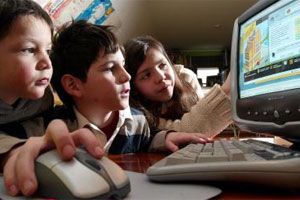by Dr Justin Coulson
Parenting
“Help, my child’s a social media addict.”
I received a phone call recently from a sobbing mother – Amber. She had called in desperation after a night from hell that involved her teenage daughter, Chloe, and her social media addiction.
The issue had been brewing for a while. The teenager was never off the phone: always messaging, texting, checking, re-checking. Facebook, Instagram, Twitter, Ask.fm, tumblr. Addiction.
Things completely blew up when Amber picked up Chloe’s phone, left unlocked on the kitchen bench. Amber discovered explicit questions being asked on Chloe’s Ask.fm profile. She showed her husband and they confronted Chloe.
The night had culminated with her husband smashing the 14-year-old’s phone. Chloe had been screaming at her dad in a rage, with tears streaming down her face. Amber was at a total loss.
There are two issues here:
First, how in the world do we determine what is an acceptable amount of social media use? And second, how do we deal with the challenge of all the filth, bullying and junk our kids are dealing with on sites like Ask.fm, tumblr, Twitter, and so on?
Let’s deal with the question of acceptable social media use first.
We’ve lost the war against media
Depending on which report you read, Australian children (aged 8-18) are spending upwards of around five hours every day consuming media. And as they get older, the proportion of that time is increasingly devoted to social media use. Given that guidelines suggest no more than one to two hours per day of screen time for our kids (from age 5 up), we are WAY beyond what is considered acceptable use. I believe that, on a global scale we’ve lost the war on screens.
Why does it matter?
Screen time is associated with a range of negative outcomes for children including (but not limited to) poorer speech and language skills in young children, poorer social skills in older children, poorer academic outcomes, lack of sleep, poorer health, and increased risk of depression and anxiety. Not a nice list.
How do we deal with it?
I reject the idea that we are powerless. At a global level, we may have lost the war. But at the family level, I still believe this is a battle we must fight.
In the past year netizens have been pleading and advocating for social media outlets to take more responsibility for the content they allow, and for abuse to be reported. While this is a reasonable position, it ignores the real issue.
It is not the responsibility of Facebook, Ask.fm, tumblr or any other platform to raise your children, to monitor their behaviour, and to hold them accountable should they do or say something inappropriate.
The responsibility is ours – as parents.
Far too many parents tell me they don’t have any idea what social media platforms their children are using, who they’re online with or what they’re doing on ‘those stupid sites’. While this is common, it’s also a failure on the part of those parents to appropriately parent their kids.
We would be reluctant to let our kids walk out the front door unless we knew where they were going, who they would be with, and what they were planning on doing. And yet in spite of the far greater dangers of the online environment (bullying, pornography, other predatory behaviour), too many of us have no idea what’s going on – and we trust that the websites our kids visit are being watched and monitored by someone else.
The solutions are not rocket science. They involve simple, positive parenting practices.
1. We must be involved in our children’s online world.
2. We must be having ongoing, regular conversations about what’s going on in their online world. We can respect privacy but still maintain communication about the issues. (Hint – it pays to have conversations when we’re not too emotional about things.)
3. We must establish rules about media and phone use and monitor adherence to those rules, with clear consequences if the rules are not kept.
4. We must be available for our children to come to us if things go badly in their media spaces.
Our social media challenges aren’t going away. 67 percent of Australian teens (eight to 12 years) are now on social media, and increasing numbers of them are reporting bullying and other problem behaviors. Over 50 percent of teens say they’ve witnessed or experienced online bullying. I suspect the numbers will only go up over time.
The issue is emotive. Talking about it with our children can often lead to significant conflict. But it doesn’t have to.
Getting mad at Facebook and Ask.fm, and smashing kids’ phones won’t make our children any safer online. Safe social media use is based on communication, boundaries and being involved with our kids.



